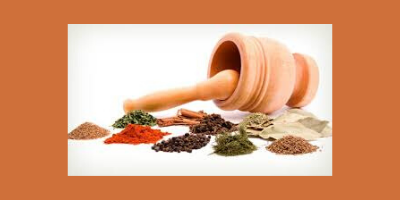What is snoring?
Snoring is the snorting and rattling sound made by the vibration of the airway tissue at the back of the mouth, nose and throat during sleep as we breathe in and out. It occurs because of a partial blockage in the airways due to the relaxation of the muscles holding them open. Snoring is very common with as many 40% of adults being affected. It is twice as common in men, as in women and is known to increase with age.
Snoring can cause sleep disturbance for both the snorer and those around them leading to symptoms of excessive daytime sleepiness, reduced mental function, emotional upset and relationship issues. If severe it can also be an early warning sign for obstructive sleep apnoea, whereby people intermittently struggle or stop breathing during the night. Receiving help for such sleep related breathing disorders is essential as they are linked to an increased risk of traffic accidents and cardiovascular disease.
THE REASONS WHY PEOPLE SNORE
Snoring is provoked by the reduced airways in either your throat or your nostrils that control the amount of oxygen that enters your body. The actual snoring sound is caused by the vibrations made by air as it struggles to get through your soft palate, uvula, tongue, tonsils, and/or muscles in the back of your throat, said Dr. Joseph Mercola, licensed physician and surgeon, on his website. Too much throat or nasal tissue is responsible for the vibrations that produce the dreaded snoring sound. The position of your tongue can also interfere with your breathing. If the air you breathe is not able to move freely through your nose and your mouth as you sleep, you will most likely be a snorer.
People snore for different reasons that include but are not limited to age, body build, nasal and sinus problems, and sleep posture. Once you are able to determine the factor that causes your snoring, you can adjust your sleeping habits to ensure a better night’s sleep for you and your family. An effective way to monitor your snoring is to ask a non-snorer to record patterns in your snoring that can help indicate the reason as to why you snore
1. SLEEP ON YOUR SIDE
The AAOMS says people are more susceptible to snoring when they sleep on their back. Researchers suggest to sleep on your side to get a comfortable night’s sleep. This sleep position will make sure that the base of the tongue will not collapse into the back of the throat, which can narrow the airway and prevent proper breathing.
2. ELEVATE YOUR HEAD
When you go to sleep, try to elevate your head to take pressure off the airway to make breathing easier.Discovery Health suggests to raise the head of the bed by putting blocks under the bed posts. A simpler alternative is to prop your upper body with pillows to allow oxygen to go through your airways.
3. THROAT AND TONGUE EXERCISES
Mercola recommends snorers to do throat and tongue exercises to strengthen these body parts so they are less likely to slip backwards. He shares the following exercise tip: “Begin by simply putting your upper and lower molars together, lightly. Next, open your mouth, focusing on pressing your molars as wide apart as you can, without over stretching. Repeat this ten to twenty times. After about 5 to 10 times you should feel your jaw muscles strengthening, and the back of your mouth opening up.”
4. INHALE STEAM
Before you go to bed, place your head over a steam bowl, covering it with a towel to clear out and reduce swelling in your nasal passages. You can add a few drops of essential oil to open up your nostrils and relieve nasal congestion.
5. MOUTH GUARD
You can visit your dentist or doctor to prescribe you an anti-snoring mouth guard. These mouth guards can hold your teeth together and keep your jaw muscles in place so they do not become too loose, says Discovery Health.
6. LOSE WEIGHT
The AAOMS suggests losing 10 lbs., especially if you are overweight, in order to reduce snoring. The extra weight that may linger around your neck can cause your throat to narrow when you lie down and produce snoring when you sleep.
7. If hugging a pillow doesn’t help, you can ace the problem with service from a sewn-in tennis ball. Here’s how: Sew a little pouch on the back of your pajama top and tuck a tennis ball inside. At night, if you start to roll on your back while you’re sleeping, you’ll get a nudge from that tennis ball, prompting you to get back on your side.
8. Gargle with a peppermint mouthwash to shrink the lining of your nose and throat. This is especially effective if your snoring is a temporary condition caused by a head cold or an allergy. To mix up the herbal gargle, add one drop of peppermint oil to a glass of cold water. (But only gargle – do not swallow.)
9. If your snoring is a seasonal problem – and you know you’re allergic to pollen – try drinking up to three cups of tea made from the herb stinging nettle. Herbalists recommend it for soothing inflammation caused by pollen allergies. To make the tea, pour 1 cup boiling water over 1 tablespoon of the dried leaf (available in health-food stores). Cover the tea and let it steep for 5 minutes. Strain and drink. Drink one cup of tea just before bedtime.
10. Dry air can contribute to snoring. There are lots of ways to do battle with dry air. A humidifier or steam vaporizer in the bedroom can keep your air passages moist; just be sure to clean it regularly, following the manufacturer’s instructions. Another approach: Just before bedtime, fill a bowl with hot water, drape a towel over your head, bend over the bowl so your nose is roughly 15 centimeters from the water, and breathe deeply through your nose for a few minutes.
Courtesy: http://www.medicaldaily.com/snoring-remedies-7-tips-stop-snoring-your-sleep-253965





0 Comments